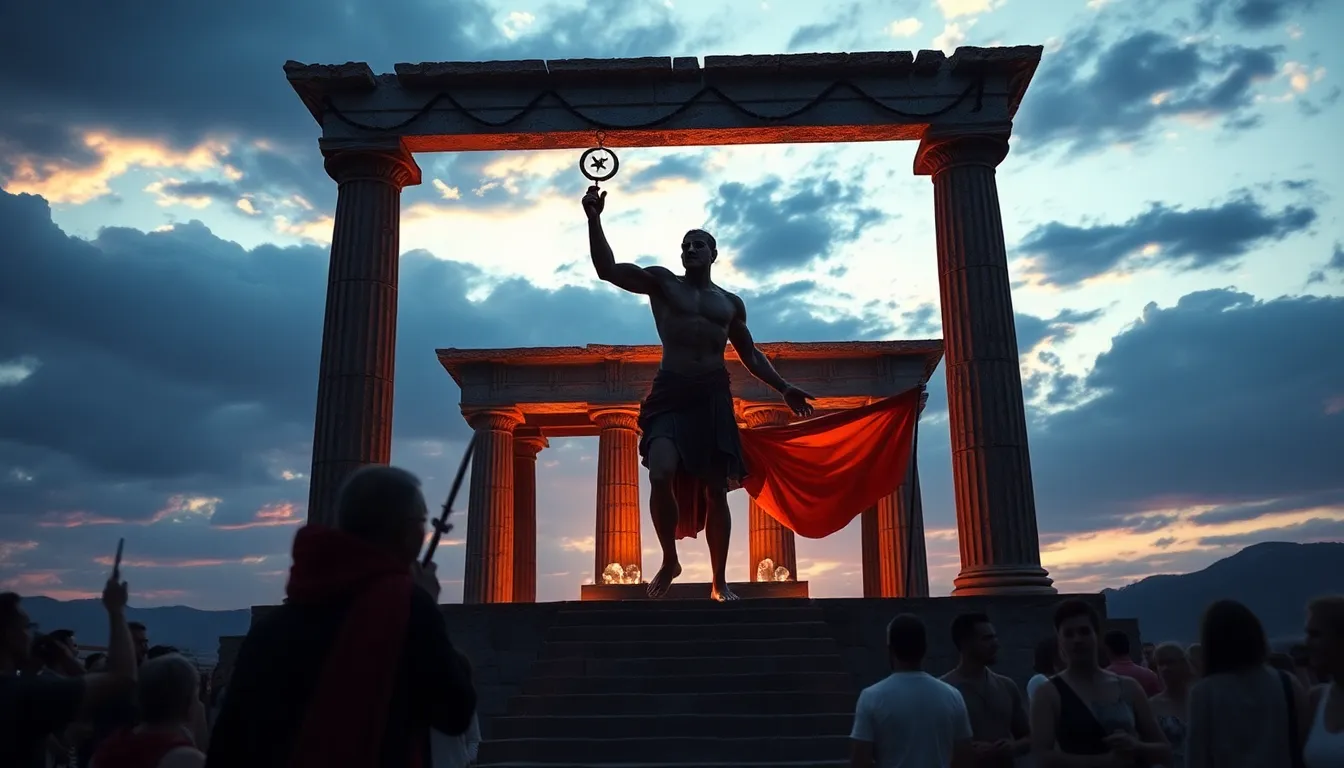The Role of Storytelling in Greek Festivals: Myths Brought to Life
I. Introduction
Storytelling has always held a profound significance in Greek culture, serving as a conduit for transmitting history, values, and beliefs. In the context of ancient Greece, storytelling was not merely a form of entertainment; it was a vital means of cultural expression that shaped collective identity.
Festivals in ancient Greece played a crucial role in the social and religious life of the communities. They were occasions for celebration, worship, and artistic expression, where myths were not only recounted but brought to life through various forms of performance.
This article explores the intricate relationship between storytelling and Greek festivals, focusing on how myths were integral to these celebrations and how they continue to resonate in modern culture.
II. Historical Background of Greek Festivals
Ancient Greece was home to numerous festivals that varied in scale and significance. These festivals can be broadly categorized into:
- Panhellenic Festivals: These were large-scale celebrations attended by participants from various city-states, such as the Olympic Games and the Pythian Games.
- Local Festivals: Smaller, community-based events that often honored specific deities or commemorated local myths.
Among the most notable festivals were:
- Dionysia: A festival dedicated to Dionysus, the god of wine and fertility, which included dramatic performances and competitions.
- Panathenaea: A major festival in Athens celebrating the goddess Athena, featuring athletic games, a grand procession, and cultural displays.
The origins of these festivals are often deeply rooted in mythology, with many events commemorating the deeds of gods and heroes, thus intertwining the narratives of myths with the rituals of public life.
III. The Art of Storytelling in Ancient Greece
The storytelling tradition in ancient Greece was rich and varied, employing various techniques and styles to engage audiences. Key methods included:
- Oral Tradition: Stories were passed down through generations, often evolving over time.
- Dramatic Performance: The use of theater to bring myths to life, engaging audiences in a shared experience.
Prominent figures such as Homer and Hesiod were instrumental in shaping the storytelling landscape of ancient Greece. Homer’s epics, the Iliad and the Odyssey, are foundational texts that not only narrate heroic tales but also reflect the values and beliefs of Greek society.
Storytelling played a crucial role in forging Greek cultural identity, as it provided a shared narrative framework that united people across different regions and city-states.
IV. Myths as Central Themes in Greek Festivals
Numerous myths served as central themes in Greek festivals, each conveying complex symbolism and meaning. Some prominent myths included:
- The Myth of Persephone: Celebrated during the Eleusinian Mysteries, representing the cycle of life and death.
- The Labors of Heracles: Featured in various local festivals, symbolizing strength and perseverance.
These myths not only entertained but also reflected societal values, such as:
- Honor and Valor: Heroic deeds often emphasized the importance of bravery.
- Divine Justice: Many stories illustrated the consequences of hubris and the need for moral integrity.
Through these narratives, festivals reinforced communal beliefs and ideals, fostering a sense of identity and continuity among the participants.
V. Theatrical Performances and Their Role in Festivals
The evolution of theater in Greek festivals marked a significant cultural development. Initially rooted in religious rituals, theatrical performances gradually became a central feature of festivals, particularly the Dionysia.
Plays brought myths to life, allowing audiences to engage with the stories on a deeper emotional level. Notable playwrights such as:
- Aeschylus: Known for introducing the second actor, enhancing dramatic complexity.
- Sophocles: Renowned for his character development and exploration of moral themes.
- Euripides: Famous for his innovative and often controversial interpretations of myth.
These playwrights contributed to the rich tapestry of Greek storytelling, helping to cement the importance of theater as a medium for cultural expression and social commentary.
VI. Rituals and Ceremonies: Storytelling in Action
Rituals and ceremonies during Greek festivals often incorporated storytelling elements, creating a dynamic interplay between myth and ritual practice. Key features included:
- Processions: Participants would reenact mythological events, embodying the characters and narratives of the stories.
- Choral Performances: Groups would perform songs and dances that recounted myths, engaging the audience in a shared experience.
The interplay between myth and ritual was crucial, as it allowed the community to connect with their heritage and engage in collective memory. Audience participation was encouraged, fostering a sense of belonging and shared identity.
VII. The Legacy of Greek Storytelling in Modern Festivals
The influence of ancient Greek storytelling continues to resonate in contemporary festivals worldwide. Modern celebrations often draw inspiration from:
- Adaptations of Myths: Many theatrical productions and performances retell ancient stories, making them accessible to new audiences.
- Cultural Heritage Preservation: Festivals aim to preserve and celebrate the rich legacy of Greek mythology and storytelling.
Through various mediums, including theater, literature, and visual arts, the myths of ancient Greece are retold, adapting to contemporary contexts while retaining their core themes and messages.
VIII. Conclusion
In conclusion, storytelling has played a significant role in Greek festivals, serving as a vital means of cultural expression that has shaped the identity of ancient Greek society. The enduring impact of myths continues to be felt in modern culture, reflecting the timeless nature of these narratives.
As we reflect on the relevance of storytelling today, it is clear that the myths and tales of ancient Greece hold valuable lessons and insights that resonate with contemporary audiences, reminding us of our shared humanity and cultural heritage.




